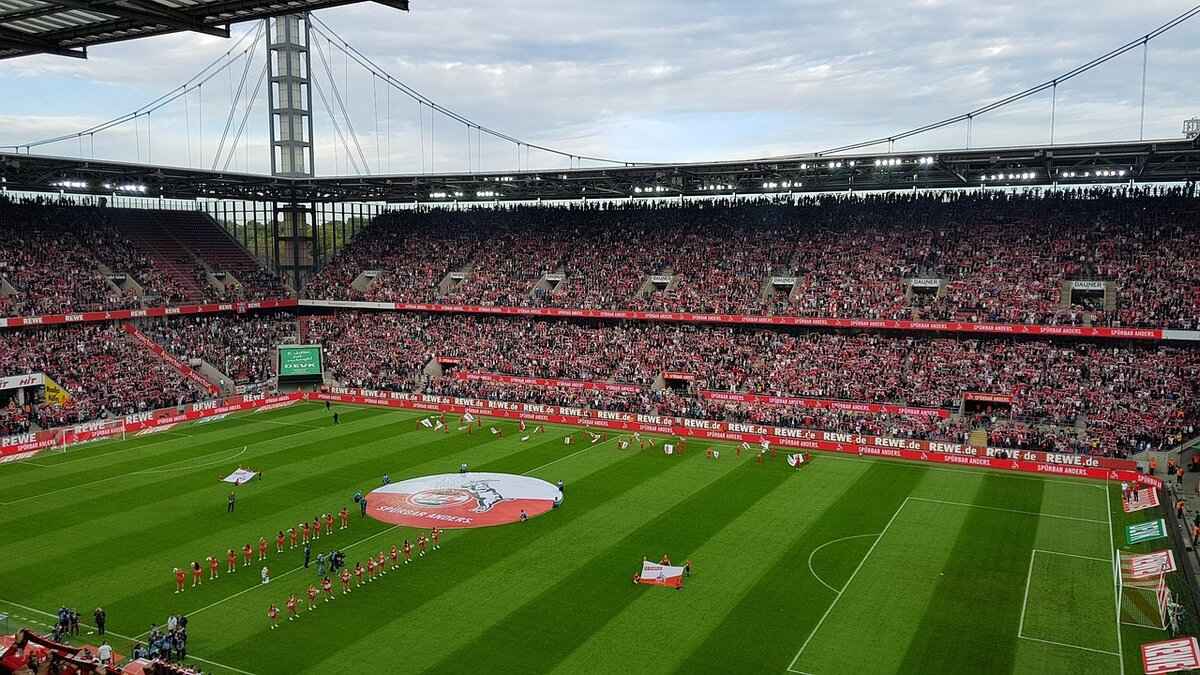Embarking on a journey to train like a professional footballer can be both exciting and challenging. Liverpool FC, one of the most successful clubs in football history, offers a comprehensive training approach that aspiring footballers can emulate. This article will explore the training methods, nutritional guidance, and mental preparation techniques that Liverpool FC employs to help players reach their full potential.
Understanding Liverpool FC’s Training Philosophy
Liverpool FC’s training philosophy is built on the foundation of developing well-rounded athletes. The club emphasizes a harmonious blend of physical fitness, technical skills, and tactical awareness. This holistic approach ensures players are not only fit but also capable of making smart decisions on the pitch. The core principles include:
- Commitment to continuous improvement
- Focus on teamwork and communication
- Adaptability in training methods
Key Physical Training Regimens
Physical training is paramount for footballers. Liverpool’s training camps prioritize strength, endurance, and agility to enhance performance during high-pressure matches. Some specific exercises include:
- Strength Training Techniques: Players engage in a variety of weightlifting exercises, such as squats and deadlifts, to build muscle and enhance overall strength.
- Importance of Core Stability: Core exercises, including planks and medicine ball workouts, are crucial for improving balance and reducing injury risk.
- Incorporating Plyometrics: Explosive power is developed through plyometric exercises like box jumps and burpees, enhancing quickness and athleticism.
Endurance and Conditioning Drills
Maintaining peak performance throughout a match is vital. Liverpool employs interval training and long-distance runs to boost players’ stamina and cardiovascular health, ensuring they can sustain high energy levels.
Technical Skills Development
Technical skills are the heart of football. Liverpool’s training focuses on essential skills such as:
- Dribbling and Ball Control Drills: Specific drills enhance players’ ability to navigate through defenders, improving their game under pressure.
- Passing and Shooting Techniques: Targeted drills focus on precision passing and accurate shooting, essential for effective gameplay.
The Role of Tactical Awareness
Tactical awareness is crucial for making split-second decisions during matches. Liverpool incorporates video analysis and tactical drills into training, helping players develop a deeper understanding of game strategies.
Nutritional Guidance for Peak Performance
Nutrition plays a pivotal role in an athlete’s performance. Liverpool provides players with tailored nutritional plans that focus on:
- Balanced macronutrients for energy
- Hydration strategies for optimal performance
- Recovery meals to aid muscle repair
Mental Preparation and Resilience
Mental toughness is as important as physical ability. Liverpool’s training includes psychological coaching to help players develop resilience, focus, and a winning mindset essential for competing at high levels.
Injury Prevention and Recovery Techniques
Injury prevention is a priority for professional athletes. Liverpool employs various recovery techniques, including physiotherapy and rehabilitation exercises, to keep players healthy and ready for competition.
How to Implement Liverpool Training Techniques at Home
Aspiring footballers can adopt Liverpool’s training techniques at home. Simple practices such as bodyweight exercises, dribbling drills, and tactical video analysis can be integrated into personal training regimens. Engaging in consistent practice and maintaining a disciplined approach will help players develop the skills necessary to excel.

Understanding Liverpool FC’s Training Philosophy
Liverpool FC’s training philosophy is a comprehensive approach designed to cultivate exceptional footballers who are not only physically fit but also technically proficient and tactically astute. This multifaceted strategy is crucial for success in the highly competitive environment of professional football. The club’s commitment to developing well-rounded players is evident in the way they structure their training sessions, emphasizing the importance of integrating various components of athletic performance.
At the core of Liverpool’s training philosophy is the belief that physical fitness is the foundation upon which all other skills are built. Players undergo rigorous conditioning programs that enhance their strength, speed, and endurance. These training regimens are tailored to meet the unique demands of football, ensuring that athletes are prepared for the physical challenges of a match. The club employs a variety of drills that focus on agility, sprinting, and overall fitness, which are essential for maintaining peak performance throughout the game.
In addition to physical fitness, Liverpool FC places a strong emphasis on technical skills. Players engage in drills that improve their ball control, passing accuracy, and shooting techniques. These skills are vital for executing plays effectively and responding to dynamic game situations. For instance, dribbling exercises help players navigate through defenders, while precision passing drills enhance teamwork and communication on the pitch. By honing these technical abilities, Liverpool ensures that its players can perform under pressure and contribute to the team’s success.
Tactical awareness is another critical aspect of Liverpool FC’s training philosophy. Players are taught to understand the game from a strategic perspective, allowing them to make informed decisions during matches. This includes studying game footage and participating in tactical drills that simulate real-game scenarios. By fostering a deep understanding of game strategies, Liverpool players are better equipped to anticipate opponents’ moves and adapt their play accordingly.
Moreover, the club recognizes the importance of mental preparation in achieving peak performance. Liverpool FC incorporates psychological coaching into its training programs, helping players develop resilience and focus. This mental fortitude is essential in high-pressure situations, where the ability to remain calm and composed can significantly impact the outcome of a match. Techniques such as visualization and mindfulness are employed to enhance players’ mental toughness, ensuring they are prepared for the challenges they face on the pitch.
Nutritional guidance is also a cornerstone of Liverpool’s training philosophy. The club provides personalized nutrition plans that cater to the specific needs of each player. Proper nutrition is vital for recovery, energy levels, and overall health, enabling players to perform at their best. By emphasizing the role of diet in athletic performance, Liverpool ensures that its players are physically prepared for the demands of training and competition.
In summary, Liverpool FC’s training philosophy is a holistic approach that integrates physical fitness, technical skill development, tactical awareness, mental preparation, and nutritional guidance. This comprehensive strategy not only prepares players for the rigors of professional football but also fosters a culture of excellence within the club. Aspiring footballers can learn valuable lessons from Liverpool’s training methods, applying these principles to their own development and striving to reach their full potential on the pitch.

Key Physical Training Regimens
Physical training is a fundamental component for any athlete aiming for success, especially in the competitive world of football. At Liverpool FC, the training camps are meticulously designed to enhance strength, endurance, and agility. These elements are essential for athletes who face the pressures of high-stakes matches. Below, we will explore the specific exercises and training methodologies that Liverpool incorporates into their routines to ensure players are at the top of their game.
- Strength Training Techniques
- Strength training is vital for building the muscle necessary to endure the rigors of professional football. Liverpool players engage in a variety of weightlifting exercises such as squats, deadlifts, and bench presses. These exercises not only enhance muscle mass but also improve overall physicality, allowing players to withstand challenges on the pitch.
- Importance of Core Stability
- A strong core is crucial for maintaining balance and stability during gameplay. Liverpool emphasizes core-strengthening exercises like planks, medicine ball twists, and stability ball workouts. By focusing on core stability, players can reduce their risk of injuries and improve their performance during intense matches.
- Incorporating Plyometrics
- Plyometric exercises are essential for developing explosive power. Liverpool’s training sessions often include box jumps, burpees, and agility ladder drills. These exercises help players enhance their quickness and overall athleticism, which are critical for making fast movements on the field.
- Endurance and Conditioning Drills
- Endurance training is key for maintaining peak performance throughout a match. Liverpool employs interval training and long-distance runs to enhance players’ stamina and cardiovascular health. This combination ensures that players can perform at high intensity for the full duration of the game.
In addition to these core elements, Liverpool FC integrates a holistic approach to physical training that includes:
- Flexibility and Mobility Work
- Incorporating yoga and dynamic stretching into training routines helps enhance flexibility and mobility. This is crucial for preventing injuries and ensuring that players can execute complex movements with ease.
- Recovery Techniques
- Recovery is just as important as training. Liverpool utilizes techniques such as ice baths, massage therapy, and active recovery sessions to ensure that players can recover effectively between training sessions and matches.
By focusing on these key physical training regimens, Liverpool FC prepares its players not just for the demands of the game, but also for the physical challenges they face as elite athletes. The club’s commitment to comprehensive training ensures that players are not only skilled but also physically prepared to excel in every match.
Strength Training Techniques
Strength training is a fundamental aspect of athletic performance, particularly in football. For Liverpool FC players, engaging in a variety of weightlifting exercises is essential for building muscle, enhancing overall physicality, and ensuring they can withstand the rigorous demands of professional football. This section will explore the specific techniques and exercises utilized by Liverpool’s athletes to maximize their strength and performance on the field.
One of the primary focuses of Liverpool’s strength training regimen is to develop explosive power. This is achieved through a combination of free weights and resistance training. Players often perform exercises such as deadlifts, squats, and bench presses, which are designed to engage multiple muscle groups simultaneously. These compound movements not only increase muscle mass but also improve functional strength, enabling players to perform better during matches.
In addition to traditional weightlifting, Liverpool incorporates plyometric exercises into their training. These exercises, which include box jumps and medicine ball throws, focus on developing fast-twitch muscle fibers, crucial for quick bursts of speed and agility on the pitch. By integrating plyometrics, players enhance their ability to jump higher, sprint faster, and change direction more effectively, all vital components of football performance.
Core Stability and Injury Prevention
A strong core is vital for any athlete, and Liverpool players prioritize core stability to improve balance and reduce injury risk. Exercises such as planks, Russian twists, and medicine ball slams are staples in their training routines. A well-developed core allows players to maintain control while executing complex movements, such as dribbling past defenders or absorbing tackles.
Moreover, the emphasis on core stability extends to injury prevention. By strengthening the muscles around the spine and pelvis, players can reduce their susceptibility to common football injuries, such as strains and sprains. Liverpool’s training staff regularly assesses players’ core strength and adjusts their routines accordingly to ensure optimal performance and safety.
Endurance and Strength Training Integration
Another critical aspect of Liverpool’s training philosophy is the integration of strength training with endurance exercises. Players participate in high-intensity interval training (HIIT) sessions that combine strength and cardio elements. For instance, they might alternate between sprinting and performing strength exercises, such as kettlebell swings or push-ups. This approach not only improves muscular endurance but also enhances cardiovascular fitness, allowing players to maintain their energy levels throughout the match.
Recovery and Adaptation
Recovery is just as important as training itself. Liverpool emphasizes the significance of allowing muscles to recover after intense strength training sessions. Players are encouraged to engage in active recovery techniques, such as yoga or light swimming, to promote muscle repair and flexibility. Additionally, proper nutrition and hydration play a crucial role in recovery, ensuring that players replenish lost nutrients and maintain optimal performance levels.
In conclusion, strength training techniques at Liverpool FC encompass a comprehensive approach that integrates traditional weightlifting, plyometrics, core stability, and endurance training. By focusing on these areas, players not only enhance their physical capabilities but also develop the resilience and agility needed to excel in the fast-paced world of professional football. Aspiring footballers can adopt similar training methodologies to improve their strength and overall athletic performance.
Importance of Core Stability
Core stability is not just a buzzword in the realm of sports; it is a fundamental aspect of athletic performance, especially in football. For players at Liverpool FC, maintaining a strong core is essential for achieving optimal performance on the pitch. This section explores the significance of core stability and how it can enhance a footballer’s game.
The core encompasses various muscle groups, including the abdominal muscles, back muscles, and pelvic region. These muscles work together to provide stability and support for the entire body. In football, where quick changes in direction, sudden stops, and explosive movements are commonplace, a strong core can make all the difference.
- Improved Balance: A stable core enhances balance, allowing players to maintain control while dribbling, shooting, or tackling. This balance is crucial for executing precise movements under pressure.
- Injury Prevention: A well-conditioned core helps distribute forces evenly throughout the body, reducing the risk of injuries, particularly in the lower back and hips. This is vital for players who endure rigorous training schedules and intense match conditions.
- Enhanced Performance: Core strength contributes to overall athletic performance. It helps generate power in movements, making it easier for players to sprint, jump, and change direction effectively.
Liverpool’s training regimen includes a variety of exercises specifically designed to strengthen the core. These exercises often incorporate stability balls, resistance bands, and bodyweight movements to challenge the core in different planes of motion. Some popular core-strengthening exercises include:
| Exercise | Description |
|---|---|
| Planks | Engages the entire core, promoting stability and endurance. |
| Russian Twists | Targets the oblique muscles, enhancing rotational strength. |
| Medicine Ball Throws | Develops explosive power and core stability through dynamic movement. |
| Dead Bugs | Improves coordination and core strength through controlled movements. |
Incorporating these exercises into regular training can lead to significant improvements in core strength, thus enhancing overall performance. Liverpool’s emphasis on core stability exemplifies their commitment to developing well-rounded athletes capable of excelling in high-pressure situations.
Additionally, core stability training can be easily adapted for aspiring footballers training at home. Simple routines can be established using minimal equipment, allowing players of all levels to focus on building their core strength. This not only aids in performance but also fosters a deeper understanding of body mechanics, which is essential for any athlete.
Ultimately, the importance of core stability in football cannot be overstated. By prioritizing core strength, players can improve their balance, reduce injury risks, and enhance their overall performance on the field. Liverpool FC’s training methods serve as a testament to the critical role that core stability plays in achieving success in football.
Incorporating Plyometrics
Plyometric exercises are a cornerstone of athletic training, particularly in sports that demand explosive movements, such as football. These high-intensity exercises focus on rapid muscle contractions, which lead to improved power and performance on the field. At Liverpool FC, the emphasis on plyometrics is evident in their training sessions, where players engage in a variety of jumps, sprints, and dynamic movements designed to enhance their explosive capabilities.
One of the primary benefits of plyometric training is its ability to develop explosive power. This is crucial for football players who need to sprint, jump, and change direction quickly during matches. By integrating exercises like box jumps, depth jumps, and bounding drills into their routines, Liverpool players can significantly improve their quickness and overall athleticism. These drills not only build strength but also enhance the players’ ability to react swiftly under pressure.
During training sessions, Liverpool coaches emphasize the importance of proper technique when performing plyometric exercises. This ensures that players maximize their benefits while minimizing the risk of injury. For instance, when executing a jump, players are taught to land softly and absorb the impact through their legs, which helps in developing core strength and stability. This focus on technique is essential, as improper form can lead to injuries that could sideline players during critical matches.
Additionally, plyometric training is often combined with other conditioning drills to create a comprehensive workout. For example, Liverpool’s training sessions may include a circuit that alternates between plyometric exercises and sprinting drills. This not only enhances explosive power but also improves cardiovascular endurance. By incorporating these varied drills, players can maintain peak performance levels throughout the entire match.
Moreover, plyometric exercises contribute to better neuromuscular coordination. This is vital for footballers who must make quick decisions and execute complex movements on the fly. Exercises like lateral hops and single-leg jumps help players develop the agility needed to navigate through defenders and react to the ever-changing dynamics of a game.
To effectively incorporate plyometrics into a training regimen, aspiring footballers can start with basic exercises and gradually increase their intensity. A suggested routine might include:
- Box Jumps: 3 sets of 10 repetitions
- Depth Jumps: 3 sets of 8 repetitions
- Lateral Bounds: 3 sets of 10 repetitions per side
- Burpees: 3 sets of 12 repetitions
As players progress, they can explore more advanced variations to continually challenge their bodies. It’s important to allow adequate recovery time between sessions to prevent fatigue and ensure optimal performance during matches.
In summary, incorporating plyometric exercises into training routines is essential for developing the explosive power required in football. Liverpool FC’s commitment to these training methods exemplifies their dedication to enhancing player performance. By focusing on technique, combining plyometrics with other conditioning drills, and progressively increasing intensity, aspiring footballers can significantly improve their athleticism and readiness for competitive play.
Endurance and Conditioning Drills
are vital components of a footballer’s training regimen, particularly for teams like Liverpool FC, where maintaining peak performance throughout a match is essential. The nature of football demands not only technical skill but also exceptional stamina and cardiovascular fitness. This section will explore the various methods Liverpool employs to enhance players’ endurance, ensuring they can perform at their best from the first whistle to the last.
One of the primary techniques used by Liverpool is interval training. This method involves alternating periods of high-intensity effort with lower-intensity recovery. For instance, players might sprint for 30 seconds, followed by a minute of jogging or walking. This approach not only boosts cardiovascular capacity but also mimics the stop-and-start nature of a football match, helping players adapt to the demands of gameplay.
Another critical aspect of Liverpool’s endurance training is long-distance running. While it may seem less relevant in the context of a sport characterized by short bursts of speed, long-distance runs are crucial for building a solid aerobic base. Players often engage in runs of 5 to 10 kilometers, focusing on maintaining a steady pace. This type of training enhances their overall stamina, enabling them to sustain energy levels throughout the match.
Moreover, Liverpool incorporates fartlek training, a Swedish term meaning “speed play.” This involves varying the intensity of runs, combining fast-paced sprints with slower jogs. Fartlek sessions can be conducted on a pitch or a field, allowing players to simulate match conditions while improving their speed and endurance. By integrating these varied paces, players develop the ability to recover quickly between bursts of activity, a crucial skill in high-pressure situations.
In addition to running drills, Liverpool also emphasizes circuit training as part of their conditioning regimen. This training method combines strength and endurance exercises, allowing players to build muscle while simultaneously enhancing their cardiovascular fitness. For instance, a circuit may include exercises such as push-ups, burpees, and squat jumps, followed by short bursts of running or sprinting. This holistic approach ensures that players develop both strength and stamina, making them more resilient on the pitch.
Furthermore, the club utilizes team-based endurance activities. These drills not only improve individual fitness levels but also foster teamwork and communication among players. Activities like relay races or small-sided games require players to work together, ensuring they are not only fit but also cohesive as a unit. This aspect of training is particularly important, as football is inherently a team sport where coordination and synergy can significantly impact performance.
Nutrition also plays a pivotal role in supporting endurance training. Liverpool’s nutritionists work closely with players to develop tailored meal plans that optimize energy levels and recovery. Consuming the right balance of carbohydrates, proteins, and fats is essential for sustaining energy during intense training sessions and matches. Hydration strategies are equally emphasized, as staying well-hydrated is crucial for maintaining performance levels.
In conclusion, Liverpool FC’s approach to is multifaceted, combining various training techniques to develop players’ stamina and overall fitness. By integrating interval training, long-distance runs, fartlek workouts, and circuit training, Liverpool ensures that its players are not only physically prepared but also mentally equipped to handle the rigors of professional football. Aspiring footballers can adopt these methods to enhance their own training, ultimately striving to reach their peak performance levels.

Technical Skills Development
Technical skills are the bedrock of football, serving as the essential tools that players wield to navigate the complexities of the game. At Liverpool FC, training camps are meticulously designed to enhance these skills, focusing on critical areas such as ball control, passing accuracy, and shooting techniques. This comprehensive approach ensures that players are not only proficient in individual skills but also capable of excelling in various game situations.
Ball control is fundamental to a player’s ability to maintain possession and create opportunities. At Liverpool, players engage in a variety of drills aimed at improving their touch and control under pressure. For instance, the use of small-sided games allows players to practice keeping the ball close while navigating tight spaces. This method not only enhances their technical ability but also fosters quick decision-making skills, which are vital during matches.
Passing accuracy is another cornerstone of Liverpool’s training regimen. Players are taught to execute passes with precision, ensuring that they can effectively distribute the ball to teammates. Drills often involve passing under pressure, where players must make quick decisions while being closely marked. This not only improves their passing skills but also enhances their awareness of the field and their teammates’ positioning.
Shooting techniques are equally emphasized in training. Liverpool’s coaching staff employs various methods to help players develop powerful and accurate shots. This includes practicing different types of shots, such as volleys, headers, and long-range efforts. Players work on their technique to ensure they can strike the ball cleanly and with confidence, which is crucial during high-stakes moments in matches.
In addition to these core technical skills, Liverpool places a strong emphasis on dribbling. Dribbling drills are designed to improve players’ ability to maneuver past defenders while maintaining control of the ball. This often involves one-on-one situations and obstacle courses that challenge players to use both speed and skill to outmaneuver opponents.
at Liverpool FC is not solely about individual drills; it also incorporates teamwork elements. Players are encouraged to communicate and work together during practice sessions, fostering a sense of unity and understanding on the pitch. This collaborative approach ensures that players can apply their technical skills in a team context, making them more effective during actual games.
Furthermore, Liverpool’s training philosophy integrates tactical awareness with technical skill development. Players are taught to read the game and anticipate opponents’ movements, which complements their technical abilities. This holistic training method ensures that players are not just skilled but also intelligent in their approach to the game.
To maximize the benefits of technical skills training, Liverpool also emphasizes the importance of mental preparation. Players are trained to maintain focus and composure, particularly during high-pressure situations. This mental resilience is crucial for executing technical skills effectively during matches.
Ultimately, the comprehensive training programs at Liverpool FC equip players with the necessary technical skills to succeed on the pitch. By focusing on ball control, passing accuracy, shooting techniques, and dribbling, alongside tactical awareness and mental preparation, Liverpool ensures that its players are well-rounded and ready to face any challenge that comes their way.
Dribbling and Ball Control Drills
Dribbling and ball control are essential skills for any football player, especially when it comes to navigating through defenders during a match. At Liverpool FC, these skills are honed through a variety of targeted drills that not only focus on individual technique but also simulate game-like scenarios. This section will explore the specific drills and methodologies employed by Liverpool to enhance players’ dribbling and ball control abilities.
One of the primary drills used at Liverpool is the 1v1 practice. In this drill, players face off against each other in a confined space, allowing them to practice their dribbling skills while under pressure. The objective is to maneuver past the defender using a combination of quick footwork, body feints, and changes of direction. This drill not only improves individual skills but also builds confidence in players’ ability to take on defenders during a game.
Another effective drill is the cone dribbling exercise. In this drill, players weave in and out of a series of cones, focusing on maintaining close ball control while increasing their speed. This exercise is crucial for developing the ability to navigate tight spaces, which is often required in high-pressure situations on the pitch. Coaches at Liverpool emphasize the importance of using both feet during this drill, ensuring that players become versatile in their dribbling techniques.
Furthermore, Liverpool incorporates small-sided games into their training sessions. These games, played in smaller areas with fewer players, create an environment that encourages quick decision-making and sharp ball control. Players are often forced to think on their feet, improving their ability to handle the ball under pressure and enhancing their overall game awareness.
To complement these drills, Liverpool places a strong emphasis on technical feedback. Coaches provide real-time insights during drills, helping players understand their strengths and areas for improvement. This feedback loop is vital for continuous development, as it allows players to refine their techniques and adapt their gameplay accordingly.
In addition to physical drills, Liverpool recognizes the importance of mental preparation in mastering dribbling and ball control. Visualization techniques are often employed, where players mentally rehearse their movements and decision-making processes in various game scenarios. This mental aspect of training helps players react instinctively during matches, further enhancing their performance.
In summary, Liverpool FC’s approach to dribbling and ball control is comprehensive and multifaceted. By incorporating various drills, real-time feedback, and mental preparation techniques, players are equipped to handle the pressures of competitive football. Aspiring footballers can adopt these methods in their own training regimens to improve their skills and confidence on the pitch.
- 1v1 Practice: Enhances individual dribbling skills under pressure.
- Cone Dribbling Exercise: Focuses on ball control and speed in tight spaces.
- Small-Sided Games: Encourages quick decision-making and sharp ball control.
- Technical Feedback: Provides real-time insights for continuous improvement.
- Mental Preparation: Uses visualization techniques to enhance instinctive reactions.
By integrating these drills into their practice routines, players can significantly enhance their dribbling and ball control skills, preparing them for the demands of high-level football.
Passing and Shooting Techniques
When it comes to football, accurate passing and shooting are crucial skills that can significantly influence the outcome of a match. Liverpool FC understands the importance of these techniques and has developed a comprehensive training approach to enhance them. Through a combination of targeted drills and structured practice sessions, players learn to execute precise passes and powerful shots, which are vital for effective gameplay.
The foundation of Liverpool’s training in passing and shooting lies in repetition and precision. Players engage in various drills that focus on the mechanics of passing, including short passes, long balls, and through balls. These drills are designed not only to improve accuracy but also to enhance players’ decision-making skills under pressure. For instance, during practice, players might be placed in scenarios where they must quickly assess their options and deliver the ball to a teammate in a challenging position.
One effective drill involves targeted passing exercises. In this drill, players aim to hit specific targets placed at various distances. This not only sharpens their ability to control the ball but also reinforces the importance of weight and angle in passing. Coaches at Liverpool emphasize that a well-placed pass can open up defenses and create goal-scoring opportunities. By consistently practicing these drills, players develop a keen sense of timing and spatial awareness, which are essential during a match.
In addition to passing, shooting techniques are equally emphasized in training sessions. Liverpool focuses on developing players’ ability to shoot with both power and precision. Drills often include shooting under pressure, where players must take shots quickly after receiving a pass or while being closely marked by defenders. This simulates real match conditions, helping players to remain calm and composed when it matters most.
Another critical aspect of shooting practice is the incorporation of varied shooting angles. Players are encouraged to take shots from different positions on the field, including long-range efforts and close-range finishes. This diversity in practice prepares them for the unpredictable nature of a match, where opportunities can arise from any angle.
Furthermore, Liverpool employs video analysis as a tool to enhance both passing and shooting skills. By reviewing footage of their training sessions and matches, players can identify areas for improvement. Coaches provide feedback on technique, body positioning, and decision-making, which allows players to make adjustments and refine their skills effectively.
To complement physical training, Liverpool also emphasizes the mental aspect of passing and shooting. Players are taught to visualize successful passes and shots, fostering a positive mindset that can lead to improved performance on the pitch. This mental preparation is crucial, as confidence plays a significant role in a player’s ability to execute under pressure.
In conclusion, the training methods utilized by Liverpool FC for enhancing passing and shooting techniques are comprehensive and multifaceted. Through targeted drills, video analysis, and mental conditioning, players are equipped with the skills necessary to make impactful contributions during matches. Aspiring footballers can adopt similar practices in their training regimens to elevate their game, focusing on precision and execution in these critical areas.

The Role of Tactical Awareness
Tactical awareness is a crucial component of football that significantly influences a player’s performance during a match. In high-stakes environments, the ability to make split-second decisions can determine the outcome of the game. Liverpool FC recognizes the importance of this skill, integrating it into their training regimen through various methods that enhance players’ understanding of game dynamics.
At Liverpool, training sessions are meticulously designed to cultivate tactical awareness among players. This includes the use of video analysis, where players review match footage to identify positioning, movement patterns, and decision-making processes. By analyzing both their performances and those of their opponents, players gain insights into effective strategies and learn to anticipate in-game scenarios.
In addition to video analysis, Liverpool incorporates tactical drills that simulate match situations. These drills focus on positioning, communication, and teamwork. For instance, players might engage in small-sided games that emphasize quick thinking and adaptability. This method allows them to practice making decisions under pressure, mirroring the high-tempo environment of a real match.
| Training Method | Description |
|---|---|
| Video Analysis | Reviewing match footage to enhance understanding of game strategies. |
| Tactical Drills | Simulating match scenarios to practice decision-making and teamwork. |
| Game Situation Practices | Encouraging players to think critically and adapt to dynamic game conditions. |
Furthermore, Liverpool emphasizes the importance of communication on the pitch. Players are taught to effectively convey information to their teammates, ensuring everyone is aligned with the tactical approach. This synergy is vital, especially during critical moments in a match where quick adjustments are necessary.
Another key aspect of tactical awareness is the ability to read the game. Players are trained to observe the movements of both their teammates and opponents, allowing them to make informed decisions. This skill not only enhances individual performance but also contributes to the overall success of the team.
- Positioning: Understanding where to be at any given moment.
- Anticipation: Predicting opponents’ actions based on their body language and movement.
- Adaptability: Adjusting tactics in response to changing match dynamics.
Coaches play a pivotal role in developing tactical awareness. By providing feedback and encouraging players to reflect on their decisions, they foster a culture of continuous improvement. This approach not only helps players refine their skills but also builds their confidence in making decisions during crucial moments of a match.
In summary, tactical awareness is a fundamental skill that Liverpool FC prioritizes in their training programs. Through a combination of video analysis, tactical drills, and effective communication, players develop the ability to make informed decisions in high-pressure situations. This comprehensive approach not only enhances individual performance but also strengthens the team’s overall tactical cohesion, making Liverpool a formidable force on the pitch.

Nutritional Guidance for Peak Performance
Nutrition is a critical component in the overall performance of athletes, particularly for football players who require optimal energy levels, endurance, and recovery capabilities. At Liverpool FC, the approach to nutrition is comprehensive and tailored to meet the specific needs of each player. This ensures that they are not only fueling their bodies effectively but also preparing them for the rigorous demands of training and match days.
Understanding the nutritional needs of athletes is essential, as their bodies undergo significant stress during training and competition. Liverpool FC employs a team of nutritionists who work closely with players to design personalized meal plans. These plans are based on individual metabolic rates, training intensity, and specific dietary preferences or restrictions.
| Food Group | Importance |
|---|---|
| Carbohydrates | Provide the main source of energy for high-intensity training and matches. |
| Proteins | Essential for muscle repair and recovery, helping to build and maintain muscle mass. |
| Fats | Important for long-term energy, especially during endurance activities. |
| Vitamins & Minerals | Support overall health, immune function, and energy metabolism. |
One of the key aspects of Liverpool’s nutritional strategy is the emphasis on pre-match nutrition. Players are encouraged to consume a balanced meal rich in carbohydrates and moderate in protein a few hours before a game. This practice ensures that they have adequate glycogen stores to sustain their energy levels throughout the match.
Additionally, post-match recovery is equally important. Liverpool players are provided with recovery meals and snacks that include a mix of carbohydrates and proteins to replenish glycogen stores and facilitate muscle repair. These recovery strategies are vital for maintaining peak performance during a demanding season.
- Hydration: Staying hydrated is crucial for optimal performance. Liverpool emphasizes the importance of fluid intake before, during, and after training sessions and matches.
- Supplementation: Depending on individual needs, players may also be advised on specific supplements to enhance their performance and recovery.
- Education: Players are educated on the importance of nutrition and how it impacts their performance, empowering them to make informed dietary choices.
Moreover, Liverpool’s nutrition team continuously monitors players’ progress and adjusts their meal plans as necessary. This dynamic approach ensures that athletes are always at their best, both physically and mentally. The combination of tailored nutrition, education, and recovery strategies positions Liverpool FC players to excel in their performance on the pitch.
In conclusion, the meticulous attention to nutrition at Liverpool FC is a testament to their commitment to athlete success. By providing tailored nutritional guidance, Liverpool ensures that players are well-equipped to meet the challenges of professional football, enhancing their performance and longevity in the sport.

Mental Preparation and Resilience
are critical components of a footballer’s success, particularly at the elite level. While physical ability often garners the most attention, the psychological aspects of the game are equally, if not more, important. Players at Liverpool FC are trained not only to excel physically but also to cultivate a robust mental framework that enhances their performance on the pitch.
The training regimen at Liverpool FC includes a comprehensive approach to psychological coaching, which focuses on developing essential traits such as resilience, focus, and a winner’s mindset. These attributes are vital for athletes who face the pressures of high-stakes competitions, where mental fortitude can be the difference between victory and defeat.
- Resilience: This quality enables players to bounce back from setbacks, whether it’s a tough loss or an injury. Liverpool’s coaching staff implements techniques to help players manage stress and maintain a positive outlook, ensuring they remain motivated throughout the season.
- Focus: Concentration is crucial during matches, where distractions can lead to costly mistakes. Liverpool employs various drills that enhance players’ ability to maintain focus, even in chaotic environments.
- Winning Mindset: Cultivating a mentality geared towards success is a priority. Players are taught visualization techniques and positive self-talk strategies to reinforce their confidence and belief in their abilities.
Moreover, Liverpool integrates mental conditioning exercises into their daily training routines. These exercises often include breathing techniques and mindfulness practices designed to improve mental clarity and reduce anxiety. By promoting mental well-being, players can perform at their peak, showcasing their physical skills without the burden of psychological stress.
Another crucial aspect of Liverpool’s approach is the emphasis on team dynamics. Building strong relationships among teammates fosters a supportive environment where players encourage each other and develop collective resilience. This camaraderie not only enhances individual performance but also strengthens the team as a whole.
Furthermore, Liverpool utilizes video analysis as a tool for mental preparation. By reviewing past performances, players can identify areas for improvement and develop tactical awareness. This reflective practice encourages a growth mindset, helping players learn from mistakes and adapt their strategies accordingly.
In conclusion, mental preparation and resilience are integral to the training philosophy at Liverpool FC. By focusing on psychological development alongside physical training, the club ensures that its players are well-equipped to handle the challenges of professional football. Aspiring athletes can take inspiration from these practices, incorporating mental conditioning into their training regimens to enhance their performance on and off the field.

Injury Prevention and Recovery Techniques
Injury prevention is of utmost importance in professional sports, particularly in football, where the physical demands are intense and the risk of injuries is high. At Liverpool FC, a comprehensive approach to injury prevention and recovery techniques is implemented, ensuring that players remain in peak condition throughout the season.
One of the key components of Liverpool’s injury prevention strategy is physiotherapy. This involves the use of specialized techniques to assess, treat, and rehabilitate players who may be at risk of injury or recovering from one. Physiotherapists work closely with the coaching staff to monitor players’ physical conditions and address any concerns before they escalate into serious injuries.
In addition to physiotherapy, Liverpool employs a variety of rehabilitation exercises. These exercises are tailored to each player’s specific needs and are designed to strengthen the muscles and joints that are most vulnerable to injury. By focusing on targeted rehabilitation, players can recover more quickly and effectively, allowing them to return to training and competition sooner.
Moreover, Liverpool’s training regimen incorporates prehabilitation techniques. These proactive measures aim to enhance players’ strength, flexibility, and overall physical condition, thereby reducing the likelihood of injuries occurring in the first place. Prehabilitation exercises often include dynamic stretching, strength training, and balance exercises, all of which contribute to a player’s resilience on the pitch.
Another essential aspect of Liverpool’s injury prevention strategy is the emphasis on proper warm-up and cool-down routines. Players are encouraged to engage in thorough warm-up sessions before training and matches, which include mobility exercises and light aerobic activity to prepare their bodies for the demands of the game. Similarly, cool-down routines help in gradually lowering heart rates and preventing muscle stiffness after intense physical exertion.
Nutrition also plays a vital role in injury prevention and recovery. Liverpool provides its players with tailored nutritional plans that focus on optimal fueling for both training and matches. A well-balanced diet rich in essential nutrients helps players maintain energy levels, supports muscle recovery, and strengthens the immune system, reducing the risk of illness and injury.
Furthermore, mental resilience is crucial in injury prevention. Liverpool incorporates psychological training into their programs, helping players develop coping strategies to deal with the pressures of professional football. By fostering a strong mental attitude, players can better handle the physical demands of the sport and reduce the likelihood of injuries caused by stress or anxiety.
Finally, regular monitoring and assessment of player health is integral to Liverpool’s injury prevention strategy. Through the use of advanced technology and data analytics, the medical and coaching staff can track players’ physical performance and identify potential risk factors. This proactive approach allows for timely interventions and adjustments to training regimens, further minimizing the risk of injuries.
In conclusion, Liverpool FC’s commitment to injury prevention and recovery is multifaceted, involving physiotherapy, rehabilitation exercises, prehabilitation, proper warm-up routines, nutrition, mental resilience training, and ongoing health assessments. By prioritizing these techniques, Liverpool not only keeps its players healthy but also enhances their performance on the field, ensuring they are always ready for competition.

How to Implement Liverpool Training Techniques at Home
Aspiring footballers looking to elevate their game can greatly benefit from implementing training techniques inspired by Liverpool FC. These methods are designed to enhance physical fitness, technical skills, and tactical understanding, all of which are essential for success on the pitch. Below are practical tips on exercises, drills, and routines that can be seamlessly integrated into any personal training regimen.
To effectively adopt Liverpool’s training techniques, it is crucial to develop a structured routine that encompasses various aspects of football training. Here’s how to get started:
- Set Clear Goals: Define what you want to achieve, whether it’s improving stamina, enhancing technical skills, or increasing strength.
- Schedule Training Sessions: Dedicate specific days and times for training to create consistency.
- Mix Up Your Workouts: Incorporate a variety of drills and exercises to keep training engaging and comprehensive.
Incorporating specific exercises can mimic the training intensity of Liverpool’s professional sessions. Here are some key components to include:
Building strength is vital for any footballer. Focus on:
- Bodyweight Exercises: Push-ups, squats, and lunges can be performed anywhere and are great for building foundational strength.
- Resistance Training: If possible, use weights or resistance bands to enhance muscle development.
Improving agility and speed can significantly impact performance. Try these drills:
- Ladder Drills: Use an agility ladder to improve foot speed and coordination.
- Cone Drills: Set up cones to practice quick directional changes, mimicking game scenarios.
Technical proficiency is crucial for any aspiring footballer. Focus on the following:
Enhance your ball control with:
- Dribbling Drills: Set up a series of cones and practice dribbling through them at varying speeds.
- Juggling: Regularly juggle the ball to improve touch and coordination.
To develop accuracy in shooting and passing:
- Target Practice: Use a wall or net to practice shooting at specific targets.
- Partner Drills: Work with a friend to practice passing drills, focusing on precision and timing.
Understanding the game is just as important as physical training. Incorporate mental exercises such as:
- Video Analysis: Watch games and analyze player movements and strategies.
- Mental Visualization: Spend time visualizing successful plays and strategies to enhance game awareness.
Nutrition plays a pivotal role in an athlete’s performance. Here are some tips:
- Balanced Diet: Focus on a mix of carbohydrates, proteins, and healthy fats to fuel your training.
- Hydration: Always stay hydrated before, during, and after training sessions.
By adopting these training techniques inspired by Liverpool FC, aspiring footballers can create a comprehensive training program at home. Consistency, dedication, and a focus on both physical and mental aspects of the game will lead to significant improvements on the pitch.
Frequently Asked Questions
- What training methods does Liverpool FC use?
Liverpool FC employs a combination of physical fitness, technical skills, and tactical awareness to develop well-rounded players. Their training includes strength training, endurance drills, and skill-specific exercises.
- How can I improve my strength like Liverpool players?
You can enhance your strength by incorporating weightlifting exercises into your routine. Focus on compound movements like squats, deadlifts, and bench presses, which are essential for building muscle and overall physicality.
- What are some effective endurance training techniques?
To boost your endurance, try interval training combined with long-distance runs. This approach helps improve cardiovascular health and stamina, allowing you to maintain peak performance throughout your matches.
- How important is nutrition for football training?
Nutrition is crucial for athletes. A tailored nutritional plan can fuel your body effectively, aiding recovery and enhancing performance during training and matches.
- What can I do to prevent injuries while training?
Injury prevention involves a mix of proper warm-up routines, strength training, and mobility exercises. Additionally, listen to your body and allow adequate recovery time between sessions.
- Can I implement Liverpool’s training techniques at home?
Absolutely! Many of Liverpool’s drills and exercises can be adapted for home workouts. Focus on bodyweight exercises, ball control drills, and agility training to replicate their training methods.














